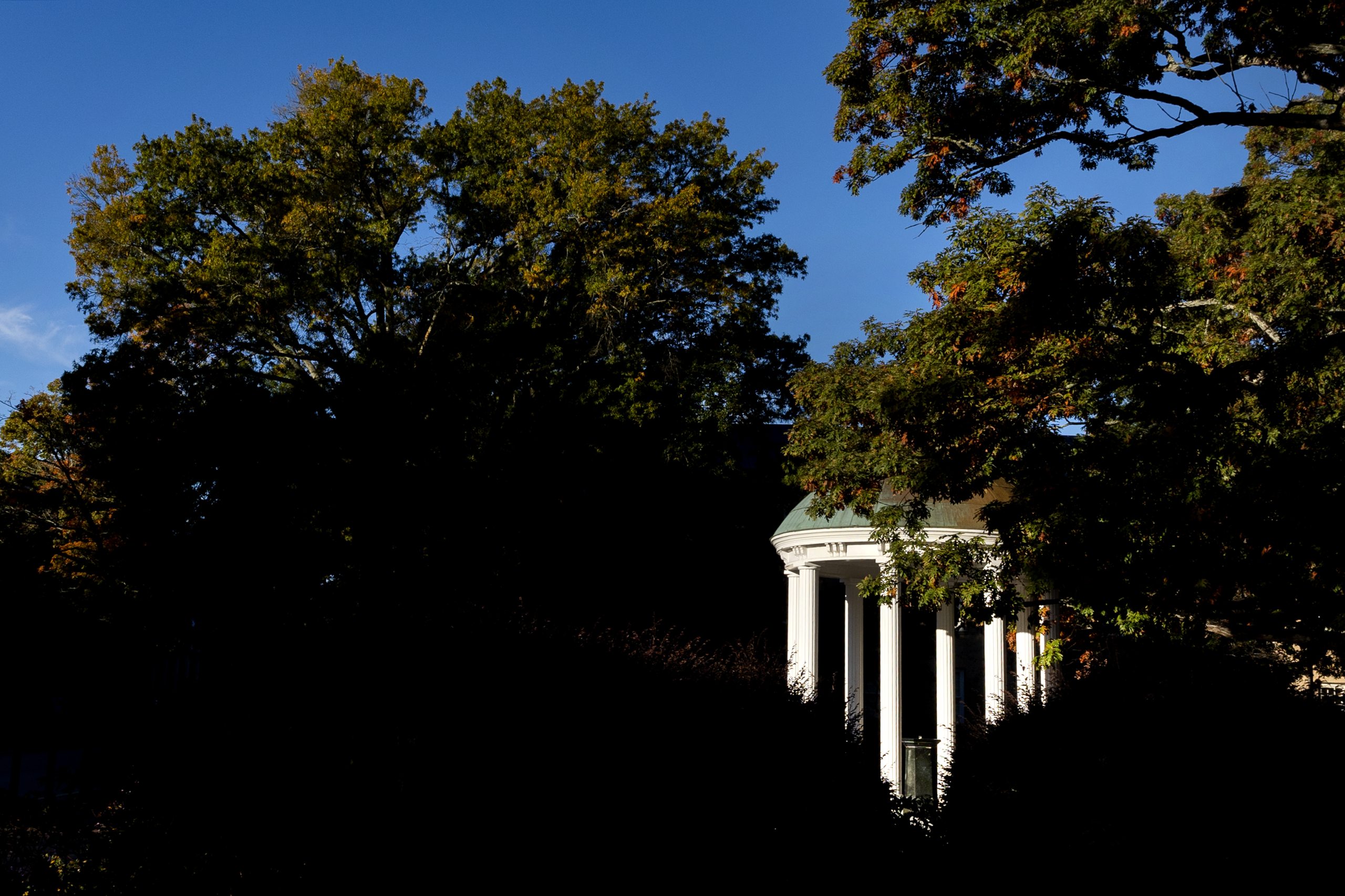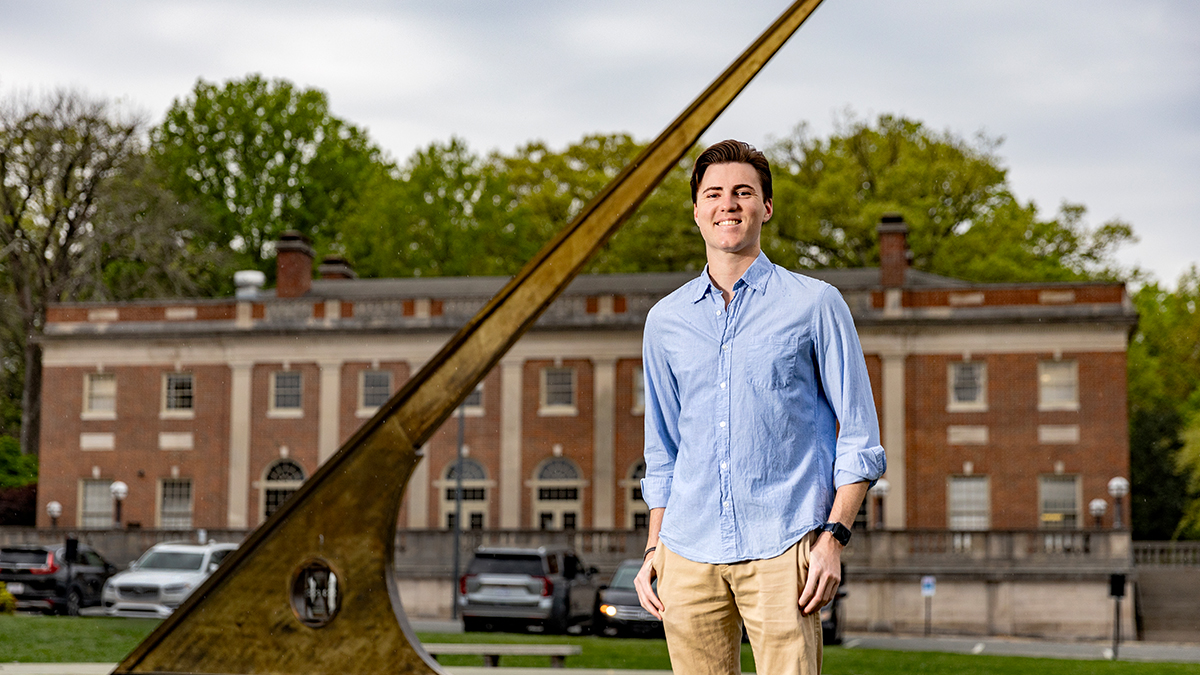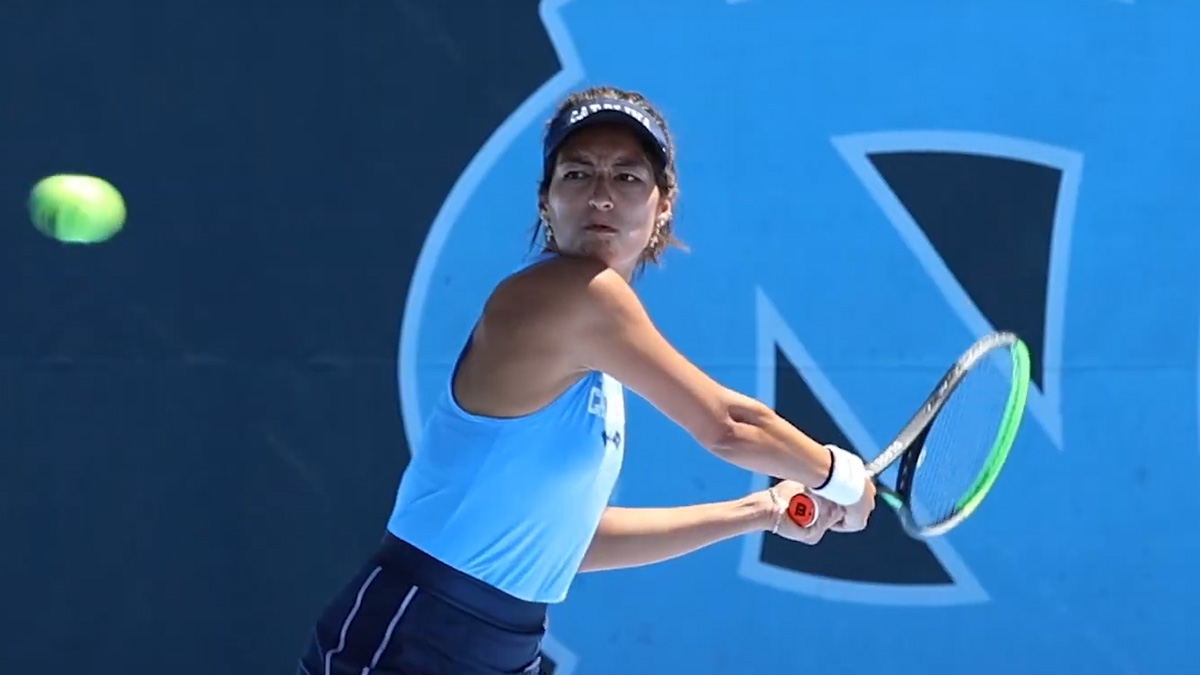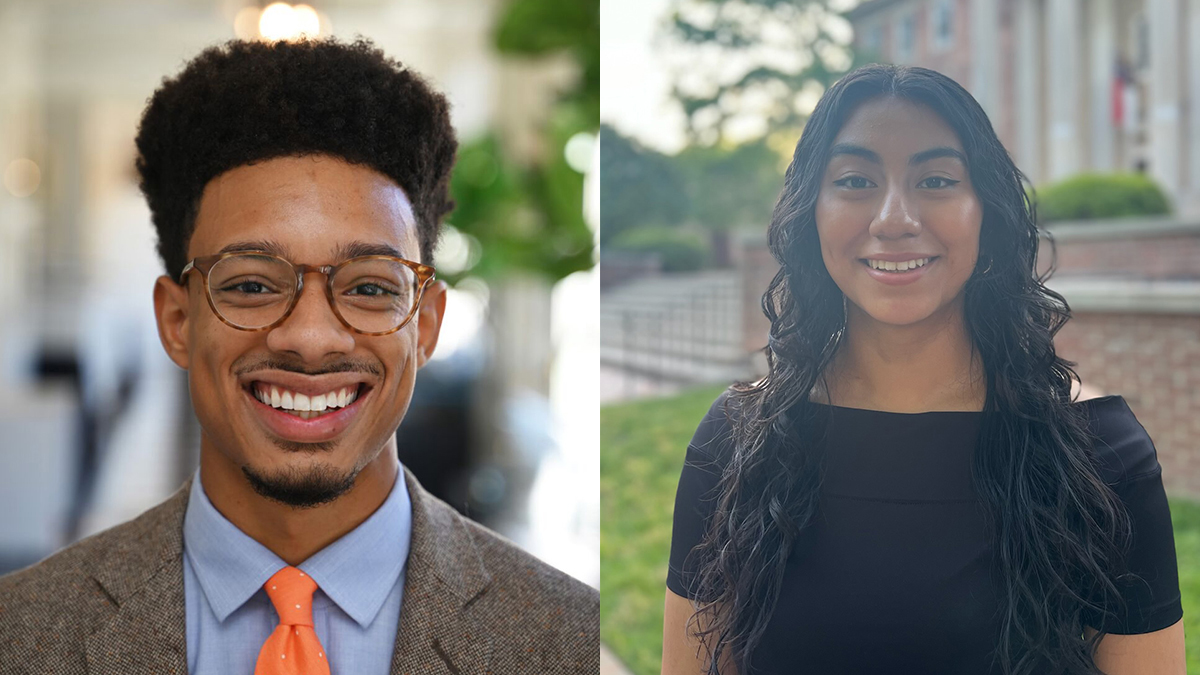Meeting robots, rewarding bravery
UNC School of Media and Journalism assistant professor Steven King showcased how emerging technologies can be utilized in the classroom and media during the November Board of Trustees meeting.
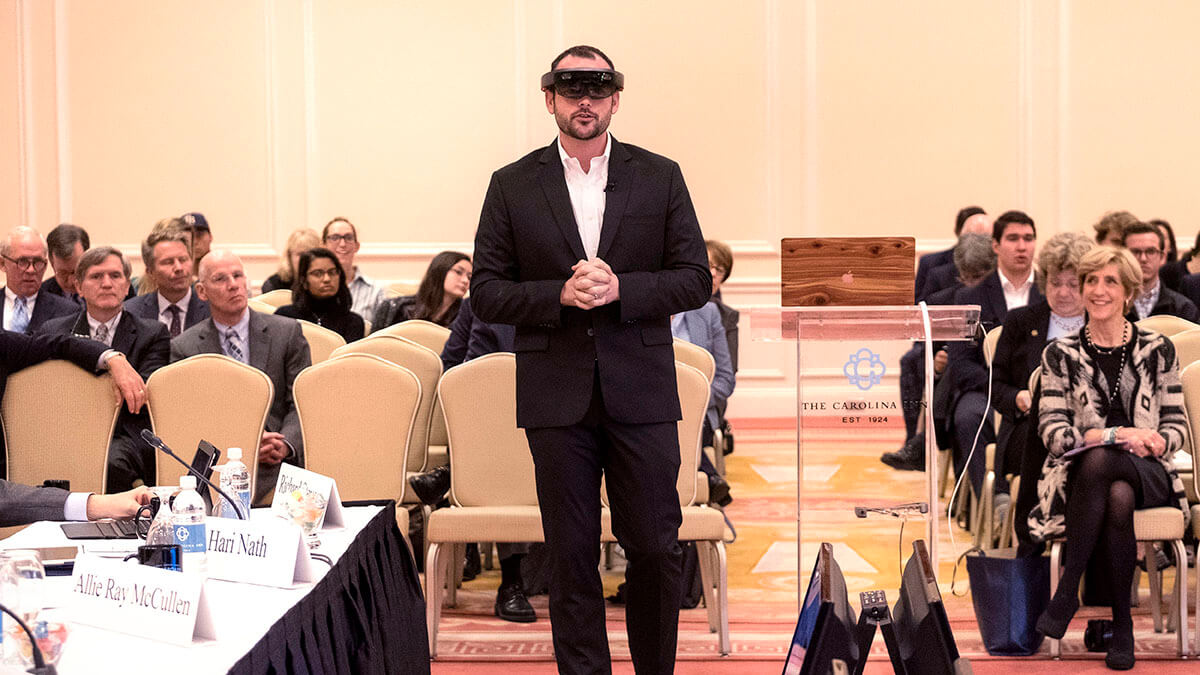
In a fast-paced presentation to the University Board of Trustees on Nov. 16, Steven King described how the UNC School of Media and Journalism is using technology, in partnership with the New York Times, the Washington Post and other major media outlets, to create a new generation of journalists.
“We work on the left side of the brain and the right side of the brain,” said King, an assistant professor of interactive and multimedia journalism. “We are problem solvers using storytelling with technology. We believe in student-led innovation.”
King showed the trustees one of his inventions – a remote-control videography robot called duCille, named for late Washington Post photographer Michel duCille, who died while covering the Ebola outbreak in Liberia. Rolling on a cart with four wheels, the robot is topped with a crown of lenses that make up its 360-degree video camera.
“I can drop this robot in Syria and send it to do interviews” and take video, King said.
Another example King gave was the use of a virtual reality interactive experience to enhance a leadership class at UNC Kenan-Flagler Business School. Wearing a headset, the student takes on the role of Sir Ernest Shackleton on an ill-fated Antarctic expedition while his ship is being crushed by ice. All around are the sounds of the ship groaning under the strain.
“You feel it. Your heart starts to race. You get this lump in your throat, and now you have to make a decision,” King said.
Journalism students also work with immersive 360-degree video to capture experiences like swimming with a sea lion in the Galapagos Islands, facial recognition technology that allows the wearer of a headset to choose a person in the crowd to identify and research on the internet, algorithms that describe someone’s personality based on social media and artificial intelligence used for journalism and teaching.
Along with the advanced technology, students also learn how to use it responsibly and ethically.
“Just because you can doesn’t mean you should,” King said. They explore real-world ethical questions like how self-driving cars should be programmed to make life or death decisions.
Also at the meeting, Chancellor Carol L. Folt spoke to burn patient and physics professor Dan Reichart by conference call. Reichart was burned Nov. 2 when material in a backpack exploded while he was trying to put out a fire at the base of the Davie Poplar.
Reichart couldn’t attend the meeting in person, so an oversized photo of him giving a thumbs up sign with his bandaged hand was projected on the screen. His wife, Lois Lanier, accepted on Reichart’s behalf the Old North State Award given by Gov. Roy Cooper and presented by Folt. The trustees and the audience gave Reichart a standing ovation.
Both Folt and board Chair Haywood Cochrane also reflected on the previous day’s two-hour listening session on the Confederate Monument, at which 28 people expressed their opinions about the “Silent Sam” statue.
“I’d like to reiterate that, if I had the authority, in the interest of public safety, I would remove the monument to a safer location on our campus, where we could preserve, protect and teach from it. What I heard yesterday reinforced that belief,” Folt said. “I do understand the frustration, that people want action right now, but we’re going to continue to follow the process that Chairman Cochrane and I have been referring to.”
The trustees also voted, for the second time, to close the University-owned and -operated Horace Williams Airport in Chapel Hill. In 2005, the trustees recommended closing the airport when the Carolina North satellite campus began to be developed on the site. With no progress on the development of Carolina North, the trustees have now removed that requirement from the previous recommendation. The University formerly maintained the airport for airplanes used by doctors to provide health care in remote areas of the state. But Area Health Education Centers relocated its planes to a Raleigh-Durham Airport hangar in 2011. The airport has operated at a loss for several years, and more than $1 million would be required to keep the runway operational.
